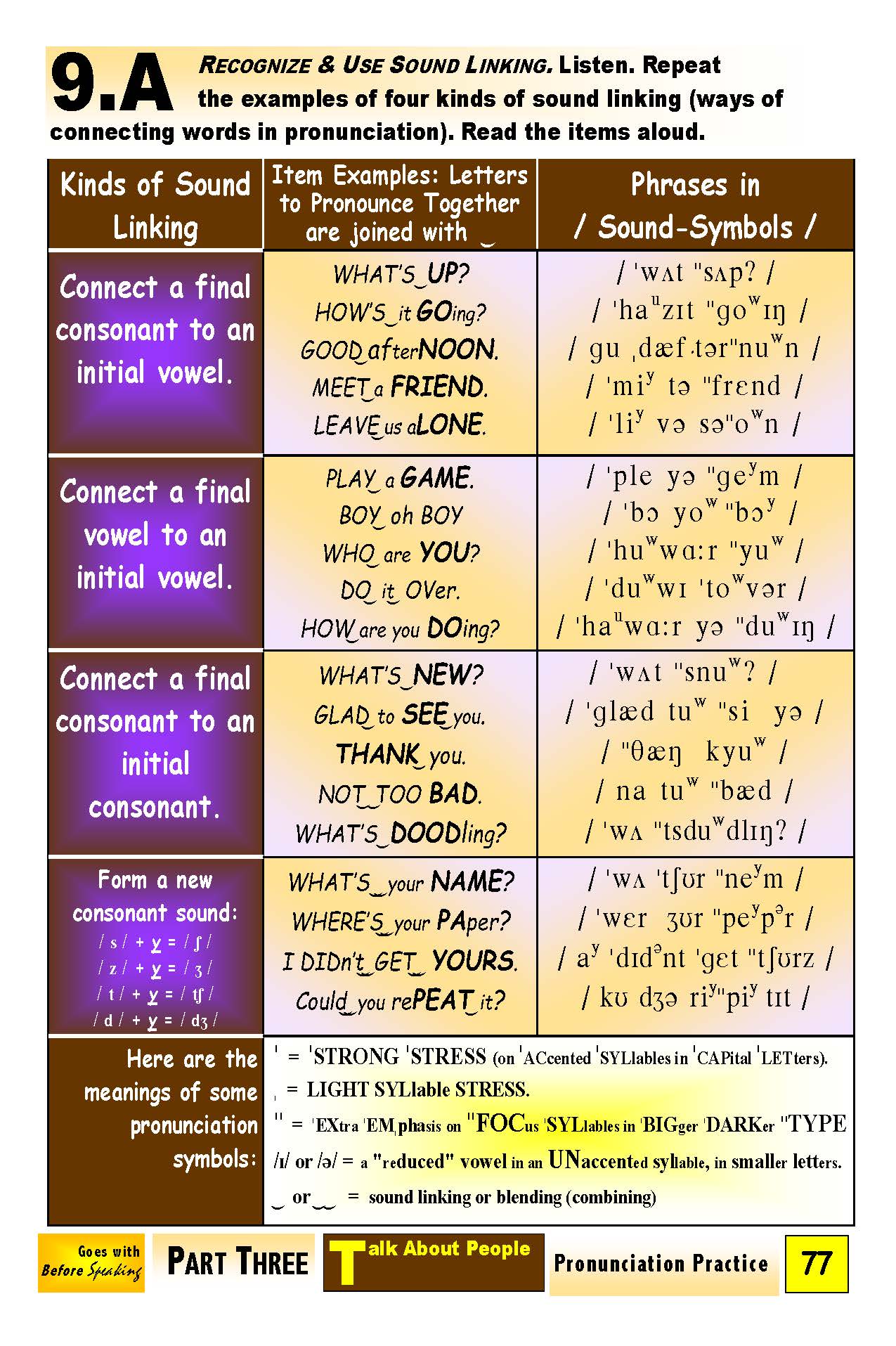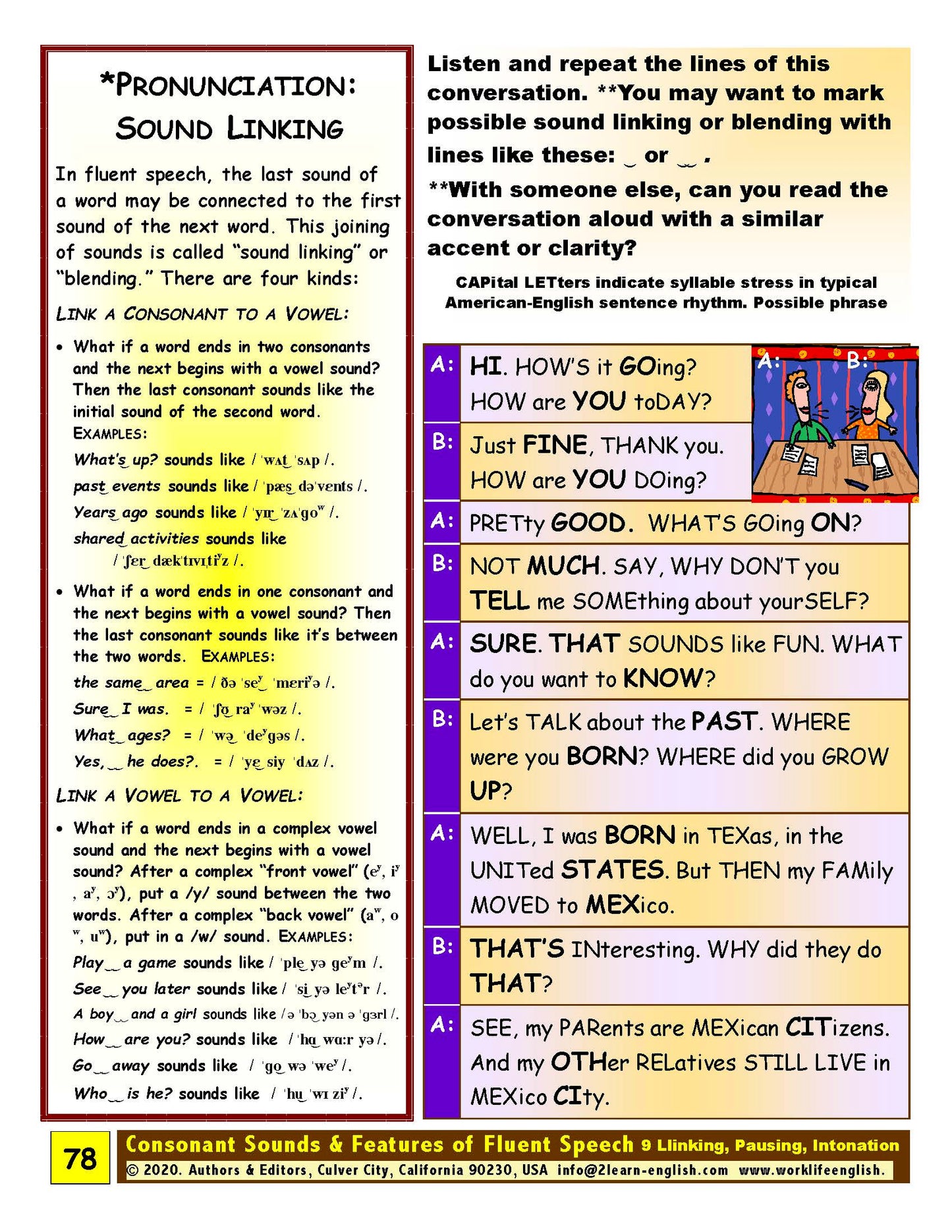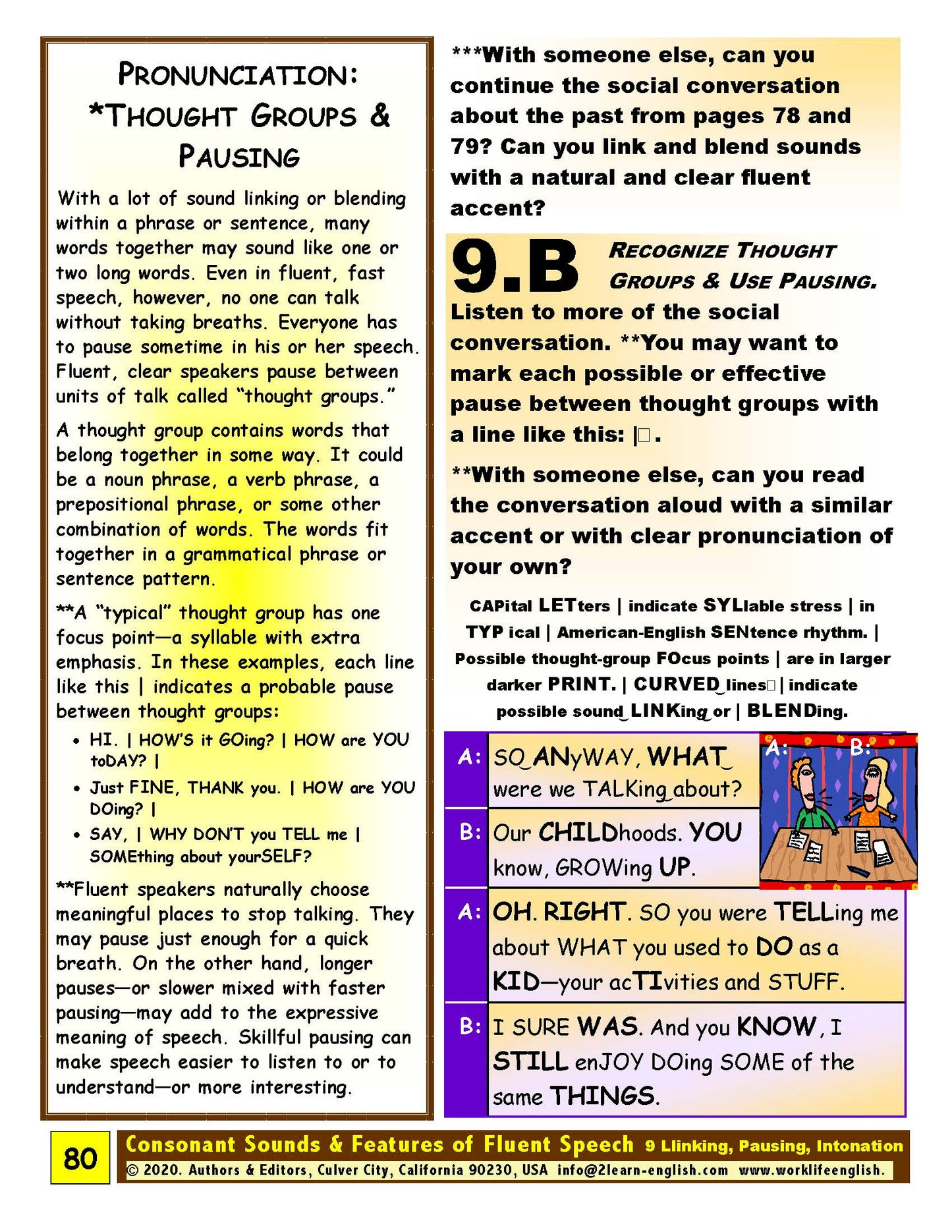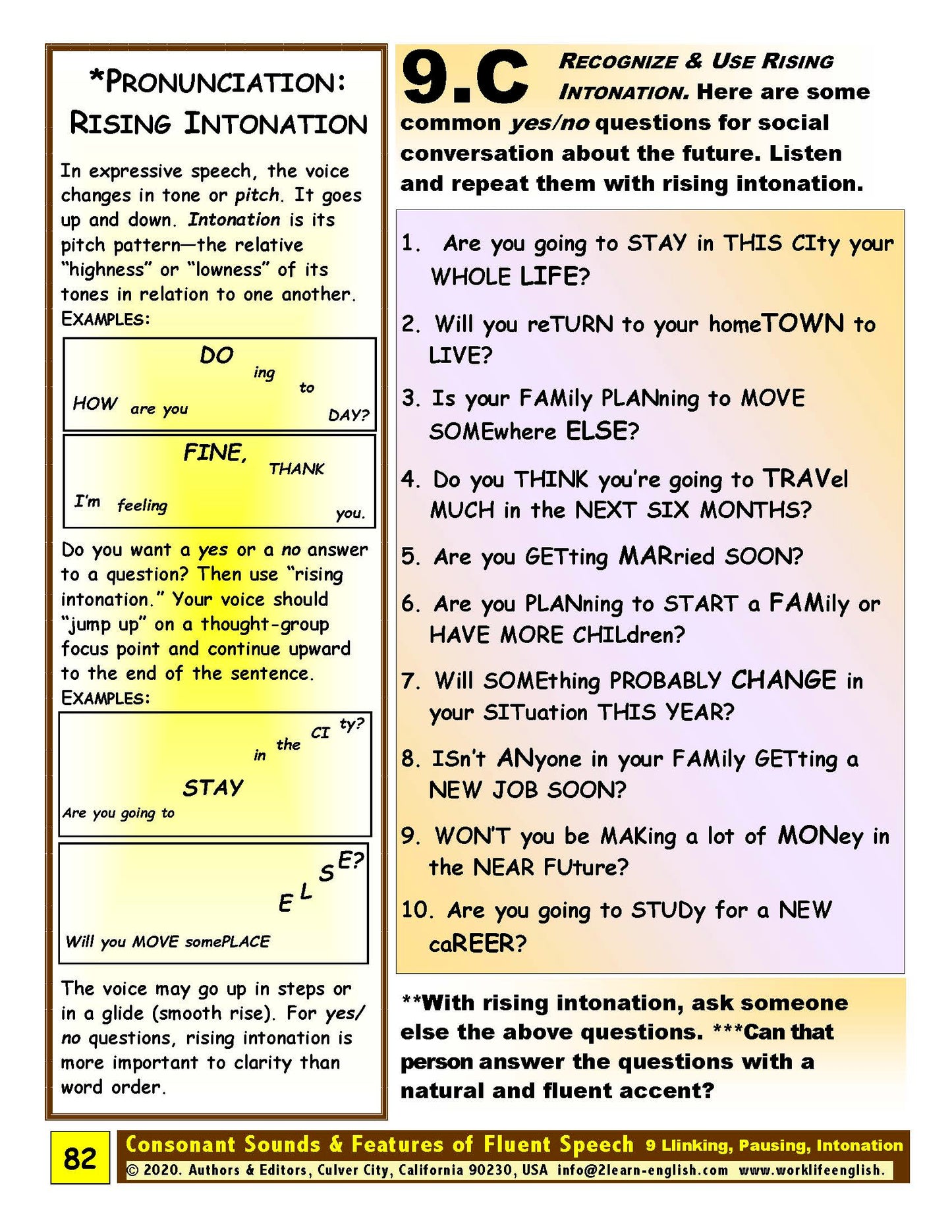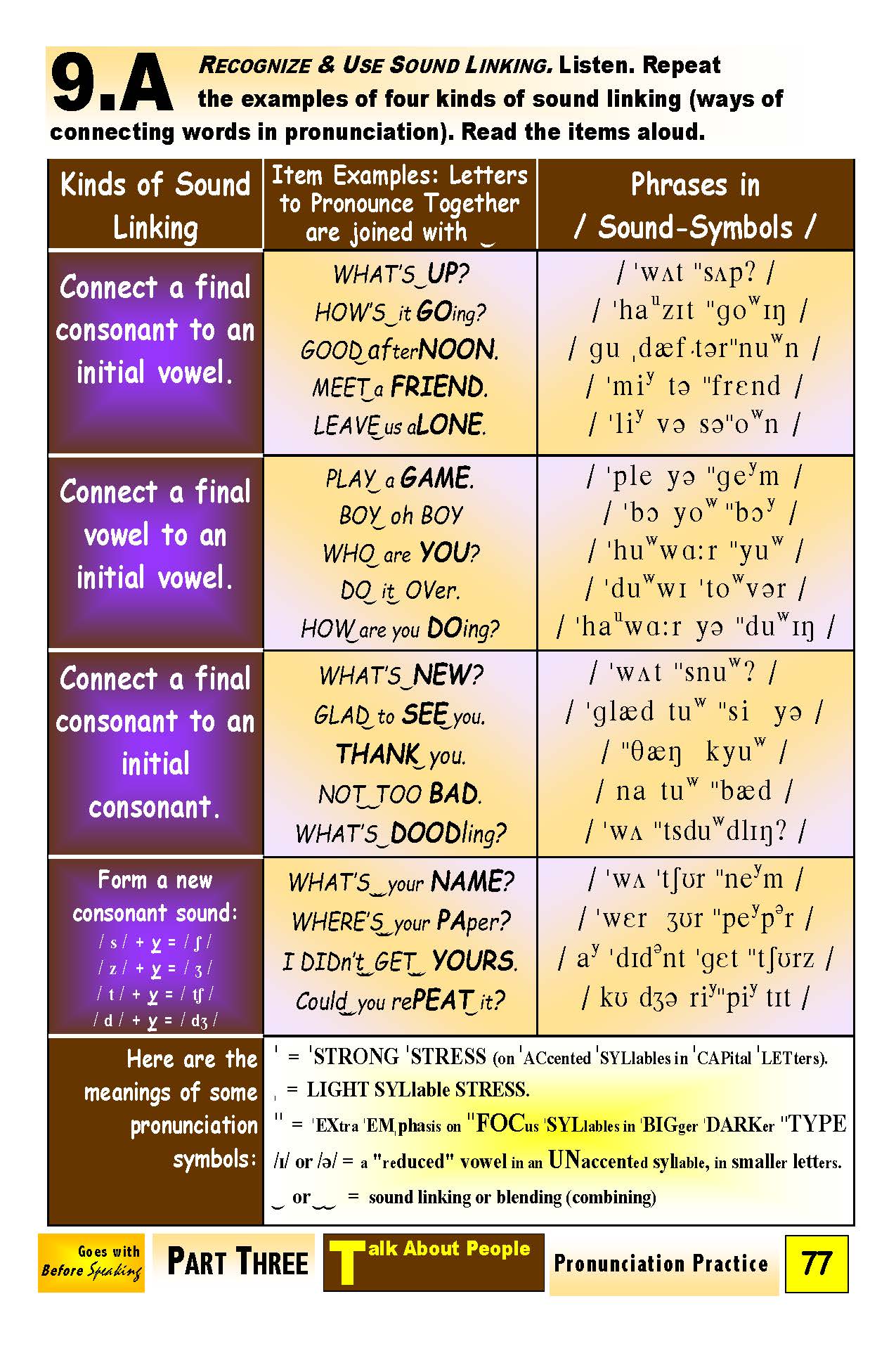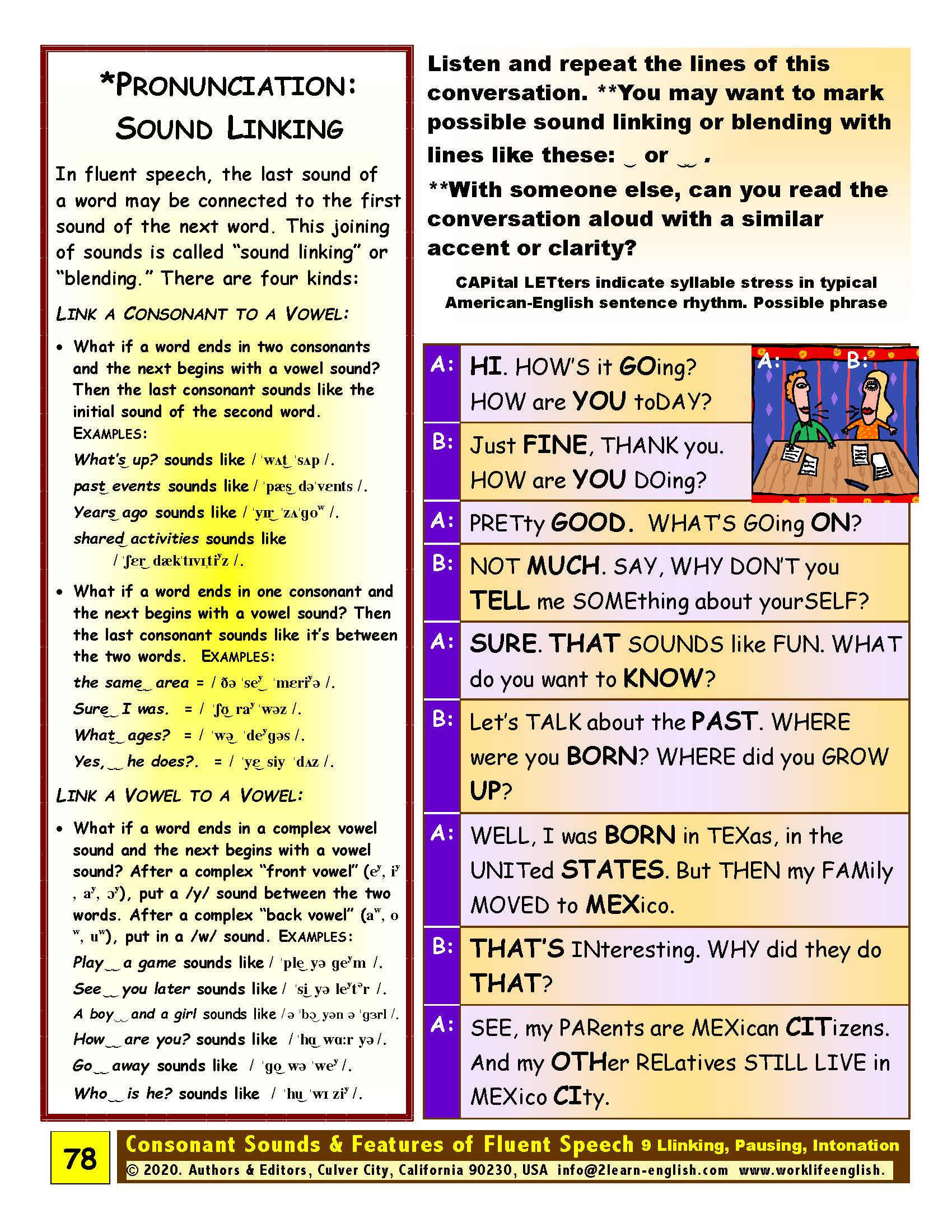Work/Life English
E-03.09 Apply Sound Linking & Pausing to Social Conversation
E-03.09 Apply Sound Linking & Pausing to Social Conversation
Sections 9.A to 9.D (Sound Linking, Pausing, & Intonation) of Part Three-9: Talk About People, of Pronunciation Practice (Before Speaking) pages 77-84 + 19 Pages from a PrPr (BeSp) Answer Key & Audioscript
8 + 19 = 27 pages
Who It’s For: Advancing Developers of Oral-Language Skills (Still) Building Fluency—by Attending to (Word-Linking in) Thought Groups, Expressive Pausing, & Purposeful Intonation
Why It’s Useful: Expanding on E-03.08: Part Three-9 of Beginners’ Before Speaking with Pronunciation Principles—as well as anticipating Download E-03.10 of Before Speaking, these Pronunciation Practice sections use Phonetic Notation and (almost) normal text in simulated Social Conversations. Learners imitate and later use these as templates.
Sidebars offer Pronunciation Tips related to three kinds of Sound Linking: Consonant to Vowel, Consonant to Consonant, Vowel to Vowel. There’s guidance in how to determine which words “go together” in Thought Groups to delineate by Pausing. Finally, possible effects of Rising, Rising-Falling, and other Intonation Patterns are explored. And all this is in contexts of “Short Talk” likely to improve learners’ skill in connecting with others verbally.
What You’ll Do:
[1] In both alphabetic characters & phonetic script, Segment 9.A presents set phrases that illustrate various kinds of Sound Linking. These are further analyzed in 9.B, in which speakers strive to Recognize Thought Groups & Use Pausing.
[2] 9.C and 9-D shift participants’ attention to Rising Intonation, which precedes Step-Down pitch in Wh-Questions but which ends Questions that expect a Yes or a No Answers. Other Intonation Patterns to acknowledge and practice occur in Series, Choice Questions, and Tag-Questions.
[3] Most of the extensive Pronunciation Practice (PrPr) Answer Key entries were based on real conversations with real people from the beginning of the century.
Couldn't load pickup availability
